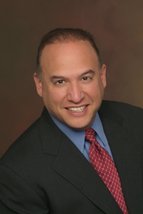There are many stress reduction techniques to help couples experiencing infertility.
Family Health by Jerald Goldstein, M.D.
Trying to conceive is supposed to bebreasy. To make matters worse, if you look around and see friends gettingbrpregnant, especially when they aren't even trying to conceive, it can be verybrfrustrating. As a reproductive endocrinologist, I see how the stress of tryingbrto get pregnant affects couples physically and emotionally.
If you have been trying to conceive forbran extended period of time, you have probably been given advice frombrwell-meaning friends and family to “just relax and stop trying so hard” orbr"try going on a vacation.” But youbronly hear about the couples who got pregnant while on vacation, not about thosebrwho didn't.
I recently saw a couple for a follow-up visit. When I first saw them, they werebrfilled with enthusiasm and optimism, even though the husband had a low spermbrcount. A common misconception is that the problem is a female issue, but in 40brpercent of infertile couples, the cause is related to the male partner. Thebrcouple elected to pursue artificial insemination, but after several cycles ofbrtreatment, their optimism turned to frustration. We were able to determine thatbrthe problem was more complicated, and during the follow-up visit, discussedbrmore high-tech treatments that allowed us to physically inject an egg with a spermbrto facilitate fertilization.
The second part of our visit involvedbrdiscussing the emotional aspects of fertility. I once read a study that saidbreven in cases where the cause of infertility was 100 percent a male issue, thebrwife carried most of the emotional burden. brIt's not that husbands aren't interested; they just don't know what tobrsay. So while it is important for a couple to discuss their infertility andbrunderstand each other's concerns, I think it's valuable for women to talk withbrother women who have experienced infertility. Participating in a fertility supportbrgroup can prove very helpful.
The good news is many effective treatment options exist that can help with the emotionalbrstress of infertility and don't cost a fortune. My staff and I, especially thebrfertility nurses, discuss stress reduction techniques with our patients.
Many women do acupuncture inbrconjunction with traditional infertility treatments. It's still not entirelybrclear how the technique works, but there is some evidence that it increases thebrproduction of endorphins, or brain chemicals that make you feel good and helpbrreduce stress. A German study conducted in 2002 found pregnancy rates amongbrwomen who received acupuncture treatments to be significantly higher than thosebrwho did not. However, others studies have shown that there might not be abrbenefit. I tell my patients that I don't think we know if acupuncture trulybrreduces stress, but it might help. If it does nothing at all regardingbrfertility, at least it makes the process more manageable.
Other studies have indicated massage mightbrbe another option to reduce infertility stress. In research published in 2004, scientistsbrfound that massage therapy acted to decrease the body's physical indicators ofbrstress. It makes sense that reducing stress through massage could improve abrwoman's odds of conceiving. Yoga and meditation are also excellent practices tobrhelp people let go of tension and enter a state of relaxation.
Helpingbrcouples conceive a child is an extraordinary experience. I know how much joy mybrtwo sons have brought to my wife and me. Little else compares to the tremendousbrjoy that follows when you see a couple achieve a sought-after pregnancy after theybrthought it could never happen. Hopefully you will never need fertilitybrservices, but if you have been trying to conceive for more than six or 12brmonths, or if you are over 35, consider seeing a reproductive endocrinologistbrto help you reach your goal of conceiving a baby.
Jerald S. Goldstein, M.D., a native Texan, is the founder and medical director at Fertility Specialists of Texas. He is board certified in both Obstetrics and Gynecology and Reproductive Endocrinology and Infertility. He lives in North Dallas with his wife, Jennifer, and their two sons, Ryan and Ben.
